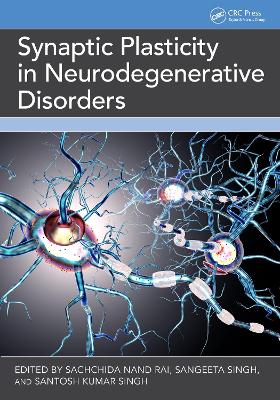Aphasia
 portes grátis
portes grátis
Aphasia
Fridriksson, Julius; Hillis, Argye Elizabeth
Elsevier Science Publishing Co Inc
07/2022
336
Dura
Inglês
9780128233849
15 a 20 dias
940
Descrição não disponível.
Section 1. History and Conceptual Models of Language and the Brain
1. History of aphasia: A broad overview
2. Broca-Wernicke theories: A historical perspective
Section 2. Neuroanatomy of Speech and Language
3. Vascular syndromes: Revisiting classification of post-stroke aphasia
4. The dual stream model of speech and language processing
5. Types of motor speech impairments associated with neurologic diseases
6. Clinical and neuroimaging characteristics of primary progressive aphasia
7. The role of disrupted functional connectivity in aphasia
8. The role of disrupted structural connectivity in aphasia
Section 3. Language Recovery
9. Functional MRI evidence for reorganization of language networks after stroke
10. The contribution of positron emission tomography to the study of aphasia
11. Electrophysiologic evidence of reorganization in post-stroke aphasia
12. Assessment of language impairment and function
Section 4. Language Intervention
13. Behavioral interventions for post-stroke aphasia
14. Behavioral interventions for primary progressive aphasia
15. Noninvasive brain stimulation to augment language therapy for post-stroke aphasia
16. Noninvasive brain stimulation to augment language therapy for primary progressive aphasia
17. Better language through chemistry: Augmenting speech-language therapy with pharmacotherapy in the treatment of aphasia
Section 5. Recent Advances
18. Ethical considerations in the management of post-stroke aphasia
19. Genetics in aphasia recovery
20. Sign language aphasia
1. History of aphasia: A broad overview
2. Broca-Wernicke theories: A historical perspective
Section 2. Neuroanatomy of Speech and Language
3. Vascular syndromes: Revisiting classification of post-stroke aphasia
4. The dual stream model of speech and language processing
5. Types of motor speech impairments associated with neurologic diseases
6. Clinical and neuroimaging characteristics of primary progressive aphasia
7. The role of disrupted functional connectivity in aphasia
8. The role of disrupted structural connectivity in aphasia
Section 3. Language Recovery
9. Functional MRI evidence for reorganization of language networks after stroke
10. The contribution of positron emission tomography to the study of aphasia
11. Electrophysiologic evidence of reorganization in post-stroke aphasia
12. Assessment of language impairment and function
Section 4. Language Intervention
13. Behavioral interventions for post-stroke aphasia
14. Behavioral interventions for primary progressive aphasia
15. Noninvasive brain stimulation to augment language therapy for post-stroke aphasia
16. Noninvasive brain stimulation to augment language therapy for primary progressive aphasia
17. Better language through chemistry: Augmenting speech-language therapy with pharmacotherapy in the treatment of aphasia
Section 5. Recent Advances
18. Ethical considerations in the management of post-stroke aphasia
19. Genetics in aphasia recovery
20. Sign language aphasia
Este título pertence ao(s) assunto(s) indicados(s). Para ver outros títulos clique no assunto desejado.
Aphasia; language rehabilitation; brain stimulation; language networks; lesion deficit mapping; language processing
Section 1. History and Conceptual Models of Language and the Brain
1. History of aphasia: A broad overview
2. Broca-Wernicke theories: A historical perspective
Section 2. Neuroanatomy of Speech and Language
3. Vascular syndromes: Revisiting classification of post-stroke aphasia
4. The dual stream model of speech and language processing
5. Types of motor speech impairments associated with neurologic diseases
6. Clinical and neuroimaging characteristics of primary progressive aphasia
7. The role of disrupted functional connectivity in aphasia
8. The role of disrupted structural connectivity in aphasia
Section 3. Language Recovery
9. Functional MRI evidence for reorganization of language networks after stroke
10. The contribution of positron emission tomography to the study of aphasia
11. Electrophysiologic evidence of reorganization in post-stroke aphasia
12. Assessment of language impairment and function
Section 4. Language Intervention
13. Behavioral interventions for post-stroke aphasia
14. Behavioral interventions for primary progressive aphasia
15. Noninvasive brain stimulation to augment language therapy for post-stroke aphasia
16. Noninvasive brain stimulation to augment language therapy for primary progressive aphasia
17. Better language through chemistry: Augmenting speech-language therapy with pharmacotherapy in the treatment of aphasia
Section 5. Recent Advances
18. Ethical considerations in the management of post-stroke aphasia
19. Genetics in aphasia recovery
20. Sign language aphasia
1. History of aphasia: A broad overview
2. Broca-Wernicke theories: A historical perspective
Section 2. Neuroanatomy of Speech and Language
3. Vascular syndromes: Revisiting classification of post-stroke aphasia
4. The dual stream model of speech and language processing
5. Types of motor speech impairments associated with neurologic diseases
6. Clinical and neuroimaging characteristics of primary progressive aphasia
7. The role of disrupted functional connectivity in aphasia
8. The role of disrupted structural connectivity in aphasia
Section 3. Language Recovery
9. Functional MRI evidence for reorganization of language networks after stroke
10. The contribution of positron emission tomography to the study of aphasia
11. Electrophysiologic evidence of reorganization in post-stroke aphasia
12. Assessment of language impairment and function
Section 4. Language Intervention
13. Behavioral interventions for post-stroke aphasia
14. Behavioral interventions for primary progressive aphasia
15. Noninvasive brain stimulation to augment language therapy for post-stroke aphasia
16. Noninvasive brain stimulation to augment language therapy for primary progressive aphasia
17. Better language through chemistry: Augmenting speech-language therapy with pharmacotherapy in the treatment of aphasia
Section 5. Recent Advances
18. Ethical considerations in the management of post-stroke aphasia
19. Genetics in aphasia recovery
20. Sign language aphasia
Este título pertence ao(s) assunto(s) indicados(s). Para ver outros títulos clique no assunto desejado.







